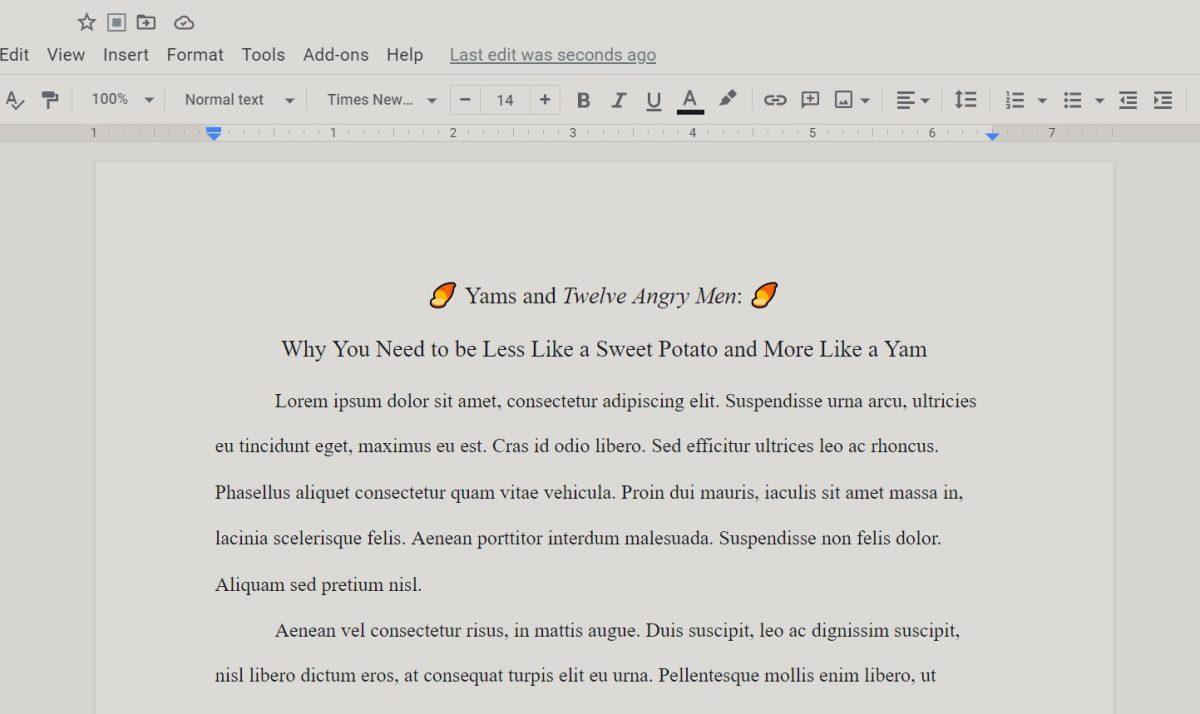Being such a versatile tuber, yams make the perfect subject to connect all your English essays to. Able to touch on themes ranging from individuality to happiness to prejudice, yams can be compared to anything and everything, and will pull your readers (and English teacher) in with their relatability. Thread the motif throughout your entire response? That’ll be at least a C paper right there, I promise.
“In a world full of sweet potatoes, be a yam.”
Let’s say you’re writing an essay about Twelve Angry Men, for example. Why not make the totally sensible comparison of Juror 8 to yams? Although Juror 8 is seemingly just another juror, only having a different number, he takes a stand against the normalcy of the room, just like yams sit on a shelf full of sweet potatoes, but still remain their own entity, not succumbing to the potato pressure.
“Don’t judge a yam by its sprouts.”
In To Kill a Mockingbird, one of the major lessons taught to Scout throughout the events of the story is that you shouldn’t make assumptions about people based on how they look or the stereotypes society puts on them. Similar to this, each yam’s worthiness is often decided based on its appearance, based on its sprouts. Although you might want to remove those sprouts before you eat the yam (that’s not the point), it doesn’t mean the rest of the yam is any less delicious.
“After searching and trying all the other products on supermarket shelves, we always return to yams, to simple happiness.”
One of the most important lessons taught in The Epic of Gilgamesh is that happiness can be found in the places you least expect, like Gilgamesh’s home of Uruk. You could easily make the comparison between yams and Uruk, how we go on all these journeys of discovery, only to find that what we’ve been searching for could be found where we started all along. Why eat strawberries, cheese, or mustard when you could just eat yams? I know, you might want to change your grocery list now.































